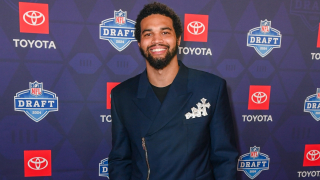A day after spearheading a New England Patriots defense that held a Los Angeles Rams offense to a single field goal in Super Bowl LIII, former defensive coordinator Brian Flores was officially named head coach of the Miami Dolphins.
Flores’ defense was integral in the Patriots’ win. When you remember that the Rams, who scored only three points Sunday night, averaged 32.9 PPG in the regular season and 28.0 PPG in the postseason; that they were second in the NFL in scoring, his success is even more sensational and praiseworthy.
“They scored 3 points,” owner Johnathan A. Kraft said. “They were [second] in scoring in the league and they scored 3 points.”
However, other than Flores’ highly anticipated promotion, not much recognition has been given to him in the media. This isn’t surprising nor is it some major injustice; fans just generally tend to care more about the players who execute the plays than the coaches who create them.
But in a league where there are now only four minority head coaches, Flores’ story matters just as much as any player who’s benefited from his strong game plan.
Flores, a son of Honduran immigrants who according to ESPN’s Ian O’Connor “lived with his four brothers 20 stories above a community that could be perilous to navigate,” was a defensive end and running back prodigy as an eighth-grader. He was also a grade-A student, and so when it came to picking colleges, he chose Boston College “over a wide circle of major college programs offering him a full ride because of its academic standing and proximity to home,” O’Connor writes.
In 2003, Flores was the Eagles’ second-leading tackler, and would have scored an NFL contract if he hadn’t torn his quadriceps muscle his senior year. Despite this setback, Flores still found his way onto an NFL team—just not as a player.
According to the Undefeated’s Jason Reid, “The former Boston College linebacker initially worked in New England’s scouting department, joining the organization after graduating in 2004.” He then spent 11 years “grinding as a Patriots assistant, learning from arguably the greatest coach in the history of professional sports: Bill Belichick.”
After Matt Patricia, the Patriot’s former defensive play caller, left to become the Detroit Lions’ head coach, Flores took on his role, succeeding with flying colors.
Now, this Brownsville native has an opportunity to establish his own legacy with a brand new team. Along with Mike Tomlin of the Steelers, Anthony Lynn of the Los Angeles Chargers and Ron Rivera of the Carolina Panthers, Flores is one of the last remaining minority head coaches in a league that seems to boast only of its diversity initiatives.
This season, of the eight head coaches who were fired, five were African-American—Todd Bowles, Hue Jackson, Vance Joseph, Marvin Lewis and Steve Wilks.
Despite this, some people, such as Cyrus Mehri, founder of the Fritz Pollard Alliance, which, according to the Boston Globe’s Ben Volin, “advocates for diversity and equality in NFL coaching and helped establish the league’s Rooney Rule in 2003,” doesn’t believe there’s a problem with the NFL’s hiring practices.
“We see what happened this time as primarily the regular rough-and-tumble part of the NFL business—win or go home,” Mehri said in a phone interview with Volin. “But we remain very optimistic about where things are going forward.
“You have owners interviewing minority candidates for head coach and GM for every opening,” Mehri said. “So all we’ve ever asked for was a fair chance to compete, and let the best candidate be hired.”
The Rooney Rule is an NFL policy that requires teams with head coaching vacancies to interview at least one or more diverse candidates. However, interviews don’t always lead to jobs.
The Nation’s Dave Zirin said it best when he tweeted: “In a league 70% African American, there are now two (!) Black head coaches after today’s (firings). Shameful numbers. Failure of a Rooney Rule without teeth and owners who will nearly always bend towards whiteness.”
According to Volin, “The lack of minority offensive coordinators and quarterbacks coaches is glaring, and remains a significant obstacle for minorities to get head coaching jobs.” At the start of the season, for example, the Kansas City Chiefs’ Eric Bieniemy was the only offensive coordinator of color in the league.
Ultimately, if the NFL truly wants to solve this problem, it needs to hire more quarterback and offensive coordinator coaches of color, since these positions often lead to head coaching opportunities.
In fact, in an interview with NPR, Reid explained that NFL Commissioner Roger Goodell has “acknowledged that, with regard to NFL head coaches, the league needs to have more coaches of color in the pipeline on offense because owners now overwhelmingly, in terms of the hiring process, are selecting from that pool of candidates.”
But, as Reid says, “Yes, the league acknowledges that more needs to be done, but it's, how does that happen?”
Minority head coaches such as Flores are important signifiers of change within a system that seems stagnant with progress. His new role as the Dolphins’ head coach, though an incredible and well-deserved feat, reminds us only of the distance we still need to go before Flores, and others who look like him, are the norm rather than the exception.
As sports journalist and activist Lester Rodney used to say, “Buddy, there is still unfinished work out there,” so until the NFL takes real, effective action, until there is no need for the Rooney Rule, Flores’ story will always matter—especially to those Black and brown boys and girls out there who dream of coaching their own football team one day.













